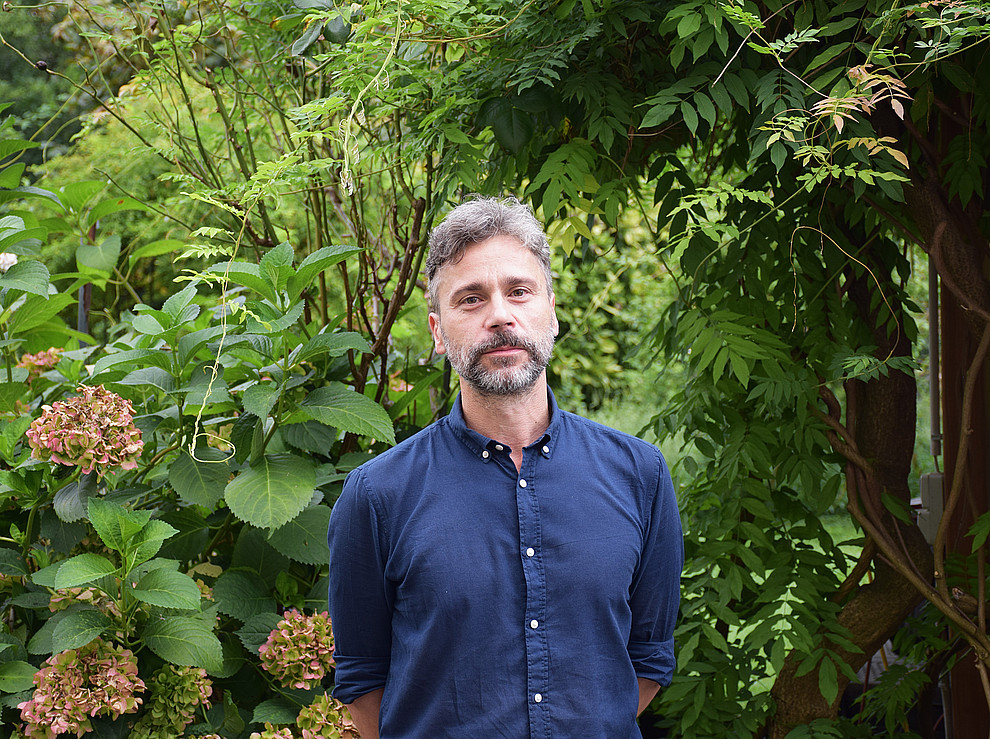Three questions for ...
Researchers and students at the Center for Jewish Studies
Olaf Terpitz (Senior Scientist)
You are particularly interested in European-Jewish literature and Russian as a Jewish language. What constitutes a Jewish language culture? What can we imagine it to be?
Since the Jewish Enlightenment, the Haskalah, which developed in Europe from the late 18th century and aimed to open up the Jewish world and at the same time emancipate the Jewish population, completely new possibilities arose for Jewish literature in terms of themes, motifs and interactions with other literatures. This also affected the language - modern Jewish literature was now written in a wide variety of languages, whether it continued to be in Hebrew, Yiddish or Ladino, or whether it was now also in German, Russian, Polish or English. The choice of language thus touched and still touches on processes of perception, interrelationships, translation and migration, etc., as we currently encounter in the confrontation with increasingly global societies. Social, historical and cultural developments, challenges and questions are thus intertwined in Jewish language culture.

Which novel or author would you immediately recommend if you were asked for a good introduction to European-Jewish literature?
Oh, there are a number of authors I would like to mention. Let's start by looking at Austria: there are definitely authors as diverse as Joseph Roth (he was born in the Galician part of the Dual Monarchy and described its downfall in novels such as "Kapuzinergruft"), Leo Perutz from Prague (who created a literary monument to the figure of Rabbi Löw during the reign of Rudolf II), and the author of "The Vault of the Capuchins". in "Nachts unter der steinernen Brücke"), Friedrich Torberg, who (self-)ironically collected anecdotes about the "oddballs" of the dual monarchy in his "Tante Jolesch", or, more recently, Vladimir Vertlib and Julya Rabinowich, and, of course, Franz Kafka. If we look further afield in Europe and the world, we see a wide variety of works in a wide variety of languages. However, the novel by the Israeli writer Amos Oz, "A Story of Light and Darkness", may particularly well outline European-Jewish literature: Conceived as an autobiography, as a biography of his family and at the same time of the state of Israel, Oz describes, among other things, his uncle David, who held a professorship for literature in Vilnius in the interwar period, as a "convinced European" for whom "the literatures of Europe [were] his spiritual home". The Shoah's rupture of civilization put an end to this.
This semester, you are leading a seminar on humor in Jewish literatures and cultures. What are the typical characteristics of Jewish humor?
Humor is individual, but it is also group-oriented and, above all, tied to a temporal and cultural context. The question is, who understands the relevant allusions? How do I convey to students that Jewish humor, which has come from the Eastern European shtetl via the metropolises of Europe (such as the cabaret artists Fritz Muliar or Fritz Grünbaum) to America (the sitcom "The Nanny") or Israel (with Ephraim Kishon's satires or the Netflix series "The Marvelous Mrs. Maisel"), is bound to the respective realities and understandings of life? Much has been written about Jewish humor in recent decades. The self-ironic and self-critical confrontation with the world and its conflicts seems to be a central moment, as it appears in Golda Meir's bon mot: "Don't make yourself so small, you're not so big".